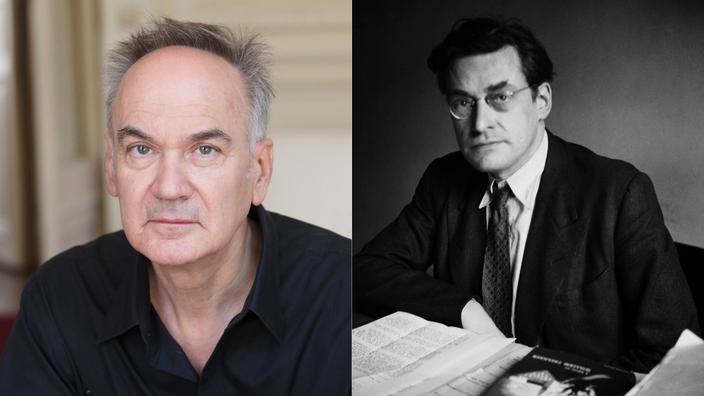Hervé Le Tellier, winner of the Goncourt 2020, is president of OuLiPo, an experimental literature workshop whose objective is to play with linguistic constraints and invent new ones.
Read also: Hervé Le Tellier, 2020 Goncourt Prize with
L'Anomalie
In the fall of 1960, a small group of “scientific poets” gathered around the poet Raymond Queneau and his friend the mathematician François Le Lionnais, under the name of “OUvroir de Litterature POtentielle” (OuLiPo), literally a workshop to manufacture of literature.
The project: to list all the potentialities of language explored by literature and to invent new structures, rules and forms by imposing mathematical challenges on the language.
Far from blocking the imagination, these constraints stimulate it and encourage the emergence of a new literature.
From the start, the group brought together friends and critics of Raymond Queneau.
There are either scientists passionate about literature or writers.
Who are the Ulipiens?
The Oulipiens are men and women united by friendship and by the same practice of writing constraints, inspired by mathematics, versification and play. They meet once a month and work in a good mood and in great discretion.
The OuLiPo, quickly attached to the College of Pataphysics, originally wanted to remain a secret society.
Marcel Duchamp joined the group in 1962. In 1966, Raymond Queneau asked the poet-mathematician Jacques Roubaud to join him.
Then it was the turn of George Perec (1967), Marcel Bénabou and Luc Étienne (1970), Italo Calvino (1973), assumed reference of Le Tellier in
L'Anomalie
, who joined the ranks in 1992. The latest entry dated is the Spanish writer Pablo Martin Sanchez, in 2014.
Read also:
The anomaly,
by Hervé Le Tellier: is there a pilot in the plane?
The production of Oulipiens navigates between sophistication and schoolboy joke.
Raymond Queneau, who had already written the same story in 99 different ways in 1947, published in 1961
One hundred thousand billion poems
, in which each of the stanzas of ten sonnets is combined with the others.
We obviously find
La Disparition
(1969) by Perec, a novel of more than 300 pages without once appearing the letter e, the most used in French and its complement,
Les Revenentes
(1972) where the "e" is the only vowel present.
"If I weren't a member of the Oulipo, I would have written a very different novel"
Herve Le Tellier
In his protean novel
La Vie mode d 'emplo
i (1978), which takes place in a building, Perec sets himself the constraint of moving the reader in the building by following the movements of the rider on a chess game.
The "horse" must explore the 100 squares of this checkerboard, without ever going through the same one again.
Giant palindromes, metro haikus, multiplication tables (“Tables de nain”) by Paul Fournel or even a hollow portrait of Etienne Lécroart, this research is published collectively or individually.
They are listed in more than 220 booklets of the “Oulipian Library”.
"If I hadn't been a member of the Oulipo, I would have written a very different novel,"
Le Tellier, the group's first writer to receive the Goncourt prize
,
said on Monday.
Les Papous dans la tête
, France Culture's cult program where people had fun using language under the constraint of a rule, was largely inspired by the founding principles of the Oulipo.

